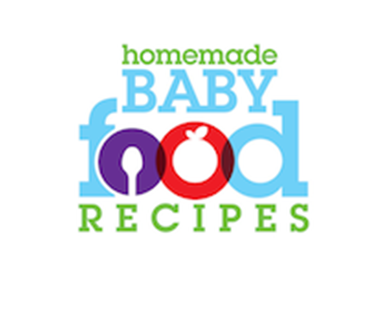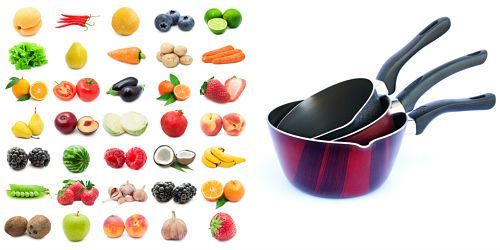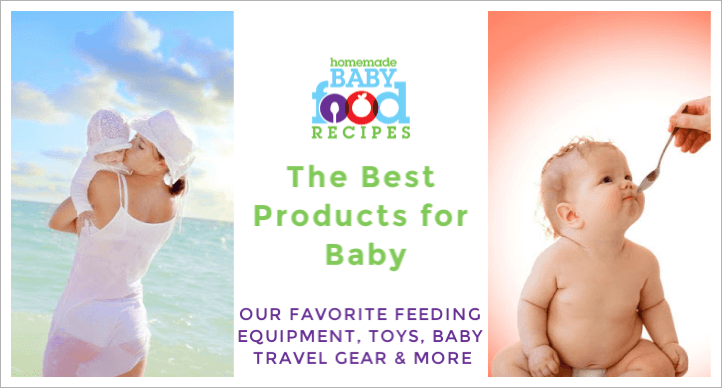Fruits and Vegetables For Baby –Do They HAVE To Be Cooked?
This is a question to which you may receive lots of different answers!
Whether or not you should cook fruits and veggies for your baby depends partly on his stage of development – and partly on the specific fruit or vegetable you are considering giving him.
Let’s look at some of the reasons you may choose to cook produce for your little one…
Reduce the risk of choking
Many raw fruits and vegetables do, of course, present a choking hazard to babies.
Take a carrot, for example – in its raw state it’s very hard and – unless your child is equipped with molars (back teeth) – he could easily bite off a piece that he’s unable to chew.
A cooked chunk of carrot, on the other hand, is nicely soft and makes a perfect finger food.
An alternative to cooking fruits or veggies that you are concerned may present a choking hazard to your baby is to place them in a Fresh Food Feeder (from Amazon).This allows him to gnaw away to his heart’s content, with the mesh preventing him biting off any lumps (a sort of ‘do-it-yourself’ puree!).
Another option is to try grating raw, hard vegetables VERY finely.
Remember, though, that some raw produce – a ripe, juicy pear for instance – should not be hazardous to your baby. If it feels ‘squashy’ and soft, then it should not need cooking for babies from 6 months onwards.
Digestibility
Raw fruits (with the exception of banana and avocado) and vegetables may be harder for your baby to digest than cooked ones.
This is because fresh produce contains a substance called cellulose. The human digestive system treats cellulose as a waste product – meaning that uncooked fruits and veggies MAY give your baby diarrhea.
Cooking produce softens the cellulose or breaks it down completely, making the food much easier to digest.
That being said, many babies do eat and digest raw fruits and veggies perfectly well from 6 months of age.
If you choose to introduce solids to your baby any earlier, then we would advise cooking produce for your baby until his digestive system is fully developed.
Allergic reactions
Some sources suggest introducing cooked produce to your baby initially, because the cooking process alters the tiny amount of protein contained in fruits and veggies.
This makes them less likely to cause allergic reactions.
The theory is that – once you’ve safely introduced the food in its cooked form – you can then try introducing it raw (some pediatricians advise waiting until baby is around 7-8 months).
An interesting report published in 2007 confirmed that cooking fruits and vegetables for baby can certainly reduce or prevent oral allergy reactions.
These occur when seasonal airborne pollen protein from trees, weeds and grass cross-react with similar proteins in fruits and veggies – causing symptoms such as irritation to the mouth and throat and tongue and occasionally leading to severe reactions like throat swelling.
Contamination
Many parents feel safer cooking fruits and vegetables for baby because heat destroys most food-borne bacteria.
It’s certainly true that produce may be contaminated by bacteria or pesticide residues and great care should be taken during preparation.
But there are other ways in which you can ensure the safety of your baby’s food. This page looks at the pros and cons of peeling fruits and vegetables for baby and suggests other ways to ensure your produce is free from contamination.
RELATED: Is Fresh Always Best? Learn about using frozen and canned fruits and vegetables in your baby food recipes
Flavour
Some fruits and vegetables taste a little different once they’ve been cooked.
In itself, this isn’t a problem – but in the case of fruits like plums, peaches and nectarines – it can lead to the final product being too sour for your baby’s palate!
As we recommend on our Pureed Baby Food Recipes page, always cook these fruits with their skins and stones intact, then remove them before pureeing or serving. This helps the fruits retain their natural sweetness.
In summary, the decision of whether or not to cook fruits or vegetables for your baby is yours to make, taking into account some of the considerations we’ve described here and under the guidance of your child’s doctor.
If you do offer your baby uncooked produce, it’s a good idea to avoid introducing any other new foods for four days – that way, if your baby experiences any tummy upset, then you’ll know which food is responsible!
Suggestions for fruits and vegetables that may be served raw
- banana
- apple (safest if finely grated and stirred into another food, such as yogurt)
- melon
- blueberries
- grapes (peel for younger babies and cut into quarters)
- *strawberry
- peach/nectarine
- pear
- plum
- avocado
- pineapple
- cherry
- *tomato
- mango
- *tangerine
- bell pepper
- *celery
*Please note that the foods marked with an asterisk are often introduced towards the end of baby’s first year or later, because they sometimes cause tummy upsets or allergic reactions in younger babies.


